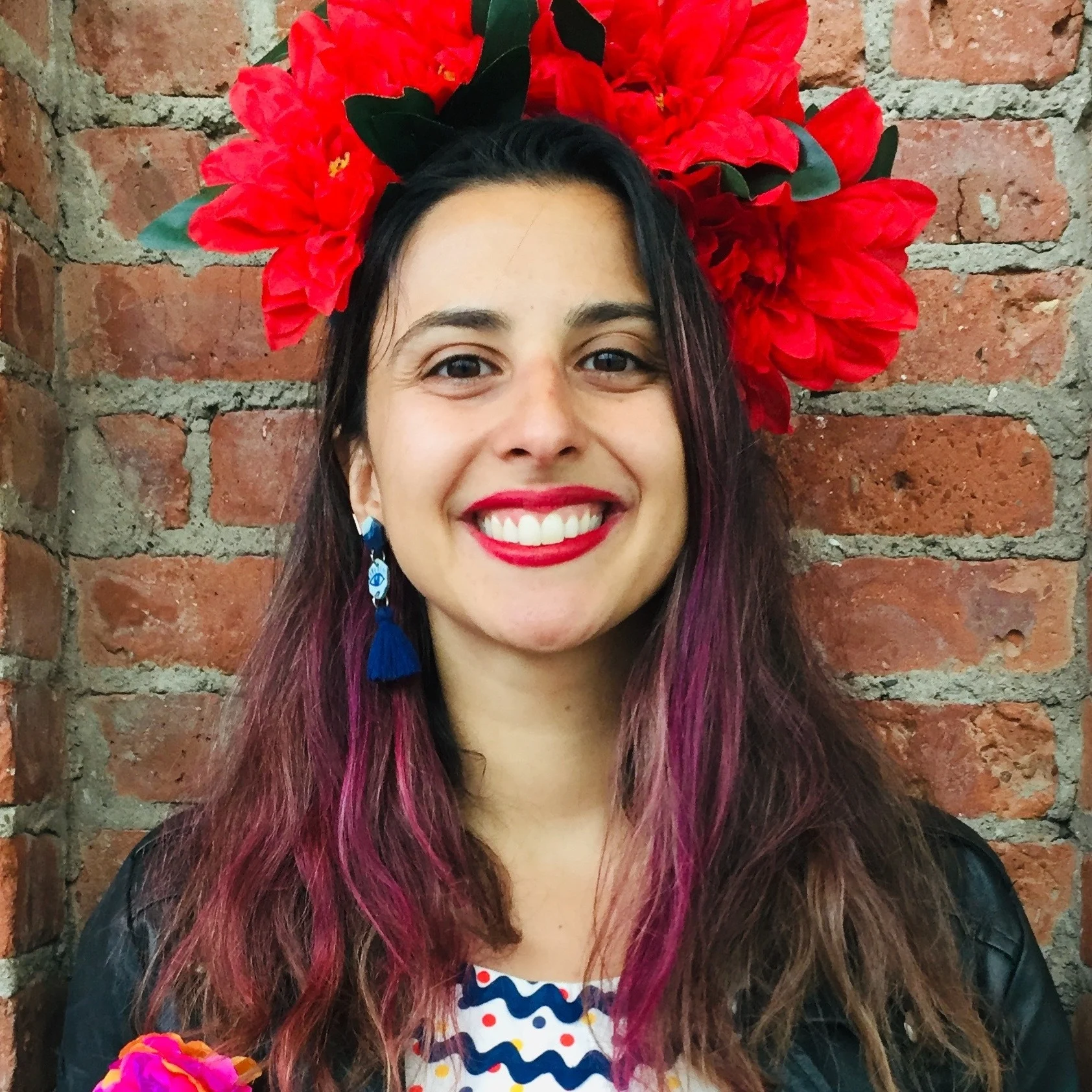Stay in the know
All our latest podcasts delivered right to your inbox.
Scottie Donovan is a New York City wastewater engineer with ADHD. When she entered the field, being on the frontlines of a pandemic wasn’t what she expected. But since wastewater helps determine positive COVID-19 cases, she’s played a vital role in public health information. She’s also heard enough poop jokes to last a lifetime.
Scottie chose to study civil engineering because of how interactive it is. She’s worked in water treatment plants, and eventually found herself at a desk job in a consulting role. This transition wasn’t the easiest for her ADHD. But with tools like lists and time chunking, she makes her days work for her.
In this week’s episode of How’d You Get THAT Job?!, get Scottie's tips for being honest about how much work you can take on. Plus, get a history lesson on how the sewer system advanced our civilization.
Related resources
Episode transcript
Scottie: And then there's all these large red buttons that you're not allowed to push for some reason. Like it looks like a video game, sometimes you're like "There's a button right there. I need to push it. It's flashing." But, you know, you can't.
Eleni: From the Understood Podcast Network, this is "How'd You Get THAT Job?!," a podcast that explores the unique and often unexpected career paths of people with learning and thinking differences. My name is Eleni Matheou and I'm a user researcher here at Understood. That means I spend a lot of time thinking about how we find jobs we love that reflect how we learn and who we are. I'll be your host.
Today we're talking about poop. Let me explain. My next guest, Scottie Donovan, is a civil engineer. Scottie was diagnosed with ADHD in high school. Today, she's got a hands-on job that really fascinates her. She specializes in treating wastewater in New York City. During the COVID pandemic, wastewater has been a really important tool in figuring out how prevalent the virus is in our communities. And did you know you can track other diseases through waste as well? I don't even want to imagine what a world without wastewater engineers would look or smell like. Scottie will help explain how it all works. Welcome to the show, Scottie.
Scottie: Thanks for having me.
Eleni: I'm really excited to learn more about this topic. It's like, not really something that I had thought about and I was like, "Oh, it's so obvious, you know, that I know." But, I know that you can learn some interesting things from studying wastewater. So, could you talk about maybe what some of those things are?
Scottie: I always like to start with my fun fact of the biggest improvement to public health in history is the invention of the sewer system. It completely changed how humans live and completely cut back on diseases and filth in general, really advanced our civilizations, and just we wouldn't be where we are today without that simple or seemingly simple infrastructure. And now that we already have that, it's kind of cool, especially right now — I always feel weird saying it's cool in regards to a pandemic — but, you know, it was something that we used to improve public health and now we can also study public health with it. We can learn about, you know, COVID numbers, what percentage of the population actually have it, and also other diseases. So, you're getting raw data in a kind of gross way, but very cool. People who don't want to go get tested or don't even know that they're sick, it will already be there.
Eleni: What is your role in that process?
Scottie: So, I am a civil engineer and I actually just design and, you know, help construct the infrastructure for distribution and treatment of wastewater. So, I work at the place where they would sample it or I'll design the infrastructure to get it to where it needs to be and hopefully treated to get that disease or whatever stuff is in that water out and made into fresh, clean water that will be not polluting the oceans anymore or our country's and world's waterways, not just oceans.
Eleni: It's interesting because, you know, we've had a mechanical engineer on the show and, you know, I have a bunch of friends that are civil engineers. You know, when I think of infrastructure, I think of like what they focus on, which is like building roads, bridges like trains like that kind of thing. I've never actually heard it, like, also including wastewater infrastructure.
Scottie: Yeah. Civil engineering — you know, my sector is the smaller branch off — but I like to think of civil engineering being anything having to do with making a city run. So, it really is any infrastructure a civil engineer will touch. Like you said, there's the trains, there's roads, there's buildings, there's all of that. But all the underground stuff as well are different options of civil engineering.
Eleni: What made you decide to focus on water treatment and wastewater management?
Scottie: I kind of lucked into it in a weird way. I took just a couple of intro courses to civil engineering and had a professor that I really enjoyed, and her focus was water and wastewater. I thought it was an interesting subject. I like the concept of taking something dirty, making it clean. I like the environmental aspects of it. I did an internship in college working at a drinking water plant and really enjoyed that. I mean, I got kind of lucky, really, to find something that I actually am passionate about and really enjoy doing.
Eleni: Do you think that your interest was driven in any way by your ADHD?
Scottie: I don't know. I think that is what drew me to liking working at a plant because it was fast moving and you know, there was so much that you could just see. It wasn't like conceptual. And I think that's what drew me definitely to civil engineering versus other types. I liked that it's a little bit more hands-on, it's, you know, like I'm seeing it happen right in front of me when I do it. I can hold up dirty water and then I can hold up clean water. And it's right there.
Eleni: What is what is like the most interesting or like surprising thing that you've learned about working with wastewater? Like, what makes it more interesting to you than the drinking water?
Scottie: You're starting with a harder product. You know, like you want kind of the same result. In theory, every wastewater plant would come in with really dirty water and it would be drinkable by the time it's out. That would be the end goal. Whereas, you know, a drinking water plant takes something that's like probably fine, or depending on where you are, fine, and then makes it even better. Yeah. It's not because I love the smell of it. That's for sure.
Eleni: Do people ask you that?
Scottie: They ask me more of how I deal with the smell or if you ever get used to it. And the answer is no, you do not get used to it. You will always know it. It makes you less nauseous over time, but you don't get used to it.
Eleni: Yeah. I was actually going to ask about, you know, what field visits are like from that perspective, from like a sensory perspective.
Scottie: From a sensory perspective, it's an overload, especially because you can't touch anything or you shouldn't because it's all kind of gross. And then there's all these large red buttons that you're not allowed to push for some reason. Like it looks like a video game sometimes you're like "There's a button right there. I need to push it. It's flashing." But, you know, you can't. And then obviously the smells because there's so many of them, it's not just, you know, what you would think because there's also chemicals, there's different byproducts at different steps and different additives at different steps, and they all are different. So, it's a lot when you're walking around.
Eleni: Is it a dangerous environment to be in?
Scottie: It can be, depending on what you're working with and depending on the step, I guess, that you're in. Yeah, I mean, you wouldn't want to get any of it at pretty much any step except for the end on you at all. That would be pretty bad. I don't know if it's folklore or if this actually happened, but at one of the plants I worked at every time they ask you to wear your eye protection, they tell a story about how their old CEO had one drop get in his eye and went blind. I only needed to hear that once, because I don't want to lose my sight. And again, not sure if it's real or not, but it is a possibility.
At one point in time, I had to actually sample water at a job — it was only for like a week or so because we were starting up a brand-new facility — so we had to prove that what we built worked. You know I have a really funny photo that I used to keep on my Tinder of me in like head-to-toe like Tyvek suit, and they only bought like Triple XL because most of the construction guys are pretty big. And there I am, I like at the time, probably a 100-pound, 5'2" girl in this thing that I'm swimming in, holding this like gross water. And I just thought it was really funny. So, I always kept it on like on dating profiles just to see it, to see who was interested in that. But yeah, you definitely do have to be careful. It's not a nice environment then. It's, I mean, there's a reason we're trying to get it out of the water.
Eleni: There's so much involved that like I never would have considered. It's not something you think about, you know, it's like "That's gone."
Scottie: Yeah. And, I mean, that's kind of what I, that's also another weird thing that I like about it. I like that no one thinks about it, but I can be a silent hero here.
Eleni: Yeah. As you said, super necessary for, like, progress and public health. So, I was going to ask you, I know you've mentioned a few things that you really like about your job, and you know how that kind of vibes with the ADHD in terms of like things being really tangible and like seeing a result and you know, being able to visit plants and not always be like at a computer. On the inverse side, like, do you have any challenges that come up at work and how do you manage them?
Scottie: Yeah, I definitely have some challenges. I'm not sure how many are specific to people with ADHD, or specific to me, or specific to my role, but I used to always work at plants like in construction roles or just like, you know, in roles that you had to be more active. So, about almost exactly four years ago, I think this week, I switched over to consulting, so, it's more of an office role and that was an extremely hard transition for me, just it was my second job out of college and I had never worked in really a professional atmosphere because working at a wastewater treatment plant or on a construction site, it's a very different attitude.
Like, everybody carries themselves differently. I had never owned, like, professional attire before, ever, like I wore jeans and a t-shirt every day with my hair in a baseball cap. Just never had to, you know, impress people or do anything like that and just, you know, sitting at a desk all day, I just had never done that. I mean, it was just very weird for like six months to have to completely revamp how I did everything at a job that I was pretty confident in going into. And like, "I know like a decent amount. They're, expecting this from me, I know how to do that. Cool. Got it." And there were so many little things that I did not realize. Like, I didn't realize how long it would take me to get ready every morning even. That was a big one, panicking because I couldn't find anything that was right in front of me.
Eleni: Yeah, I relate to that. I always put my clothes out the night before because I spent too long in the morning. Yeah, my morning brain looking for things. Do you want to talk a little bit about, like what some of you know, maybe the routines or like other like coping strategies that you came up with during that transition time?
Scottie: Yeah. Yeah. Definitely.
Eleni: Things that you're still doing now?
Scottie: That routine definitely was a key factor, not just only like you mentioned, I did learn "Set out your clothes the night before because you will not have time in the morning." That's a big one. And I also kind of made routines during the day, you know, like during my 9 to 5, you know, got there at 8:45, I would give myself 15 minutes to have coffee and just, you know, get all settled, you know, and things like that. Like I would, you know, up until 9:30, you can answer emails and then, you know, go get more coffee or something if you need it. So, like organizing my day a little bit differently was definitely something that helped, and then planning out my day as well.
I gave myself 15 minutes every morning to, you know, make a list of what I felt I could accomplish that day, you know, versus what needed to be done, you know, just break it apart a little bit and putting in that time to organize yourself every morning, really, definitely was helpful. I'm a big list person now as well. I have a calendar, but then I also have an agenda. I have to have both because I need to be able to see both because that's just how it works. Because I need the big picture and I need what's due today is what or what I'm doing today. And I think it maybe just took also a level of maturity in me growing up to be honest with myself and with other people about how I work and working with people that understood that was nice.
Eleni: Yeah. Do you want to give an example of how you might phrase that or what you might say?
Scottie: Yeah. So, first was me asking someone like, "Hey, can you get me this spreadsheet? OK, how long do you think that will take?" Like I always ask, what are their expectations? Because people don't always, you know, just tell you things because that's life. But they'll get back to me with "I think that this is how long it will take." Yeah, it's nice when you get a person that's like when they actually ask, "Is that reasonable?," because that makes it easier. But if they, you know, tell me, "I think it'll take an hour." Like, OK, I'm like, "All right, let me go look a little bit more into this in, you know, whatever time frame I think. And let me make sure that that is how long it will take me," because if it's something I've never done before or if it's just something that I knew right away would take me longer, just got to be blunt and say, "OK, would it be OK if it takes me about an hour and a half? Because I think that it would give me the space to work the way I find efficient." And I've never had someone say no, but I have had some people say, "OK, I think I'll find someone else to do it then."
And the first time that happened, you know, you build yourself up to like, "I'm going to just be honest myself, I'm going to do it," blah, blah, blah. And is something like "Damn, like I just lost that." But you didn't really lose anything because you weren't going to fulfill their expectations anyway. It would have been worse if it took you twice as long to do it, or if it was late and it was something they really needed. You know, it's better to be honest.
Eleni: Yeah, I think normalizing that is pretty cool. You know, it's like, you're not always going to get it right, but trying things out and seeing how people respond and if it gets you somewhere, that's great.
Scottie: Agree.
Eleni: So, usually we like to end with like, what advice do you have for people wanting to get into the space, like particularly for women or people with ADHD?
Scottie: My advice would be if you're interested in the space and if you just want to learn more about it, there are so many different, like, volunteer organizations that you can actually go be a part of and do a cleanup and they'll introduce you to different aspects of the water resources world. And that way you don't have to like go get an engineering degree first because that would be insane. Also, a lot of places will offer wastewater treatment plant tours. If you just reach out to them, if you really are interested in seeing what it's all about and it's fun. So, if you do have ADHD, there's a million things to look at. Just don't press the big red button.
Eleni: Good advice.
Scottie: Keep your hands to yourself.
Eleni: Thank you for talking to me about poop.
Scottie: Any time.
Eleni: I feel like we could do so many more poop jokes.
Scottie: Oh, it's a big part of the industry.
Eleni: You've been listening to "How'd You Get THAT Job?!" from the Understood Podcast Network. This show is for you, so we want to make sure you're getting what you need. Email us at thatjob@understood.org with your thoughts about the show, or maybe you'd like to tell us how you got that job. I'd love to hear from you. If you want to learn more about the topics we covered today, check out our show notes for this episode. We include more resources as well as links to anything we mentioned in the episode.
Also, one of our goals at Understood is to help change the workplace so everyone can thrive. Check out what we're up to at u.org/workplace. That's the letter U dot org slash workplace. Understood.org is a resource dedicated to helping people who learn and think differently discover their potential and thrive. Learn more at understood.org/mission.
"How'd You Get THAT Job?!" is produced by Grace Tatter. Briana Berry is our production director. Our theme music was written by Justin D. Wright, who also mixes the show. Margie DeSantis provides editorial support. For the Understood Podcast Network, Laura Key is our editorial director. Scott Cocchiere is our creative director and Seth Melnick is our executive producer. And I'm your host, Eleni Matheou. Thanks again for listening.
Host
Eleni Matheou
leads user research for Understood. She helps Understood to center its work on the lived experiences and voices of people who learn and think differently.
Latest episodes
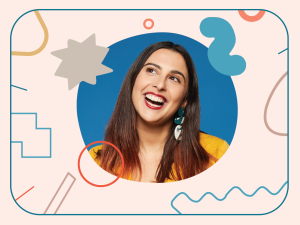
June 28, 2023
In the series finale of How’d You Get THAT Job?!, host Eleni Matheou unpacks what we’ve learned about how people thrive at work.

June 14, 2023
Nathan Friedman is the co-president and chief marketing officer of Understood.org. And he has dyslexia and ADHD. Learn how he got into the C-suite.
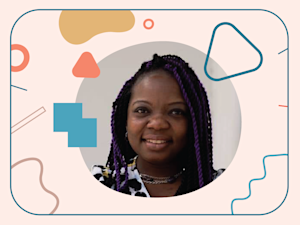
May 31, 2023
Dr. Loucresie Rupert is a child, adolescent, and adult psychiatrist with ADHD. She didn’t have an easy time getting her diagnosis as a Black woman.
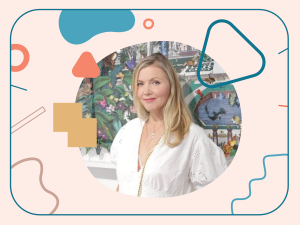
May 17, 2023
Kristjana Williams is a London-based Icelandic artist with dyslexia. She wasn’t diagnosed until she was 25, and now she has her own studio.

May 3, 2023
Aideé Chávez Frescas has ADHD, and is a senior social media manager at Understood. Her posts help end stigma and show others they’re not alone.
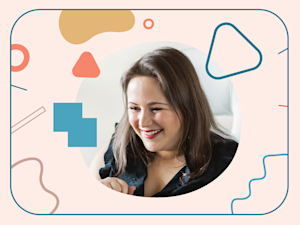
April 19, 2023
Alex Gilbert is a career coach with ADHD and dyslexia. After working in leadership development for years, she started her own coaching business.
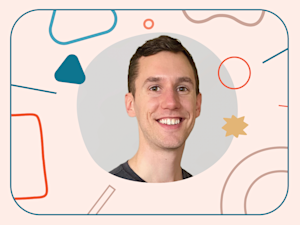
April 5, 2023
Dan Reis was diagnosed with ADHD during the pandemic. Now, he’s made it his mission to explore coping strategies to help him get his work done.
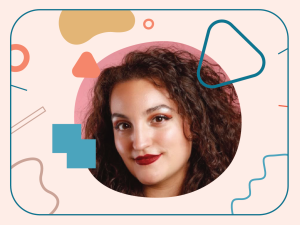
March 22, 2023
Rachel Basoco’s two jobs keep things interesting for her ADHD. She works full time at Fidelity, and part time at 11:11 Media, Paris Hilton’s company.
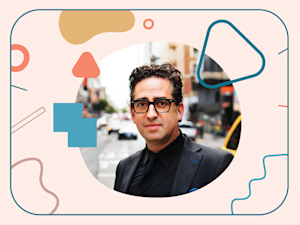
March 8, 2023
Gil Gershoni says that everything he does is dyslexic. He founded the branding firm Gershoni Creative and hosts the Dyslexic Design Thinking podcast.
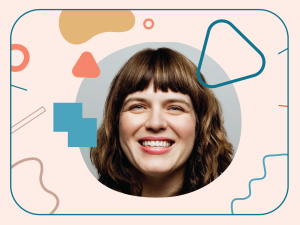
February 22, 2023
Claire Odom is a psychotherapist with ADHD. She’s also a disability inclusion consultant who has advice on navigating the workplace.

